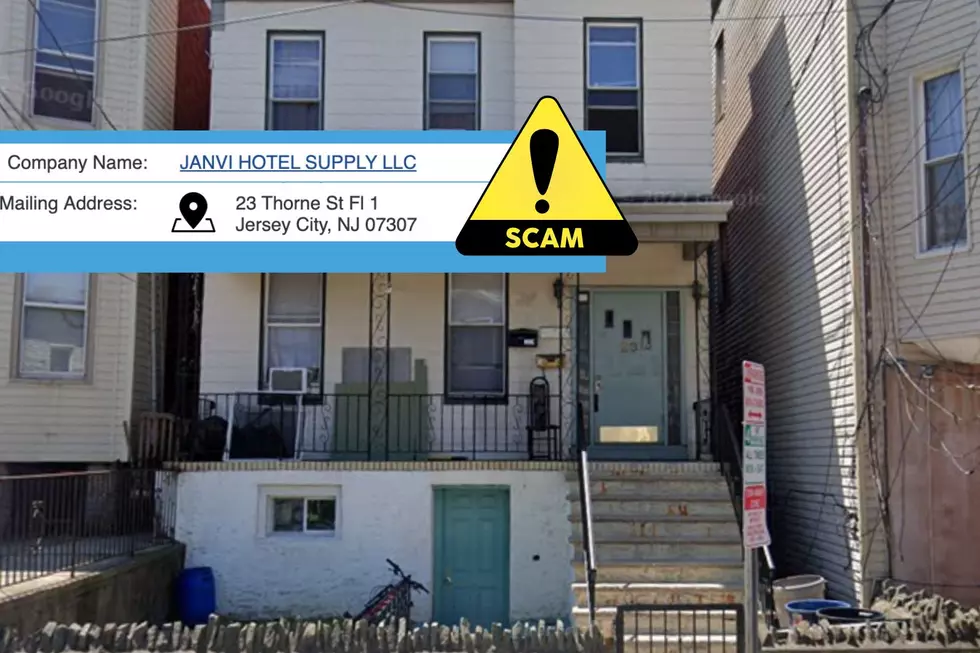
5 scams that are costing NJ residents big money
New Jersey's among the wealthiest states in the country — is it any wonder scammers like to go after our residents?
But they don't stick to the rich. New Jersey law enforcement has been warning about several scams that target the elderly and the vulnerable — or scams that use fear and intimidation to get victims to send money or personal information.
There are some recurring themes among them: The scammers demand payment via wire transfers or pre-paid card accounts. They don't give would-be victims a chance to verify information. They may call from unlisted or untraceable numbers — though not always.
Here's some of the scams reported in the last several months, and the steps you can take to avoid becoming a victim:
Pay Up, Or You're Under Arrest
No matter what the person on the other end of the phone says, New Jersey’s Attorney General's Office does not make calls demanding immediate payment on overdue bills. Neither do other New Jersey law enforcement agencies, the IRS or other government agencies.
The office of acting AG John J. Hoffman issued an alert last October about the "unabashed scams." He said con artists "enrich themselves by creating a sense of fear and a false urgency so that victims will respond immediately and send money,”
Most such scam calls are an attempt to defraud consumers or obtain personal information, officials said.
“Don’t send money out of panic or fear," Steve Lee, acting director of the State Division of Consumer Affairs. "Take a moment to think through whether the person calling is really who he says he is."
Similar scams are often employed by people pretending to be various forms of law enforcement, or by large companies. People contacted by such entities are generally advised to contact the companies directly using known, legitimate channels and report suspicious activity to law enforcement.
Caught Powerless
A scam seen often late last year — primarily targeting small businesses — has fraudsters threatening to cut off power to customers unless they pay a bogus electric bill. In a new variation, scammers use robo-calling type systems that mimic PSE&G’s automated phone system.
"The number of calls we’ve received from customers alerting us to this scam has increased significantly," Greg Dunlap, vice president of Customer Operations for PSE&G, said last fall.
Someone pretending to be a PSE&G employee will call a customer, warning that unless an immediate payment is made using a prepaid debit/credit card, the service will be disconnected. The customer is then told to call a certain number with the card. At that time, the interactive voice system leads the caller to a fake representative who takes the prepaid card number.
What customers need to know, according to PSE&G:
- Be wary of callers who demand immediate payment and threaten service termination.
- When PSE&G reached out to customers, “customer-specific information is shared with the customer.” If the customer does not hear accurate information about their account, it’s likely that the call is not genuine.
- Any customer who has doubts about the legitimacy of a call from PSE&G should call PSE&G directly at 1-800-436-PSEG (7734).
- Another sign that the call may be genuine: PSE&G customers scheduled for disconnection due to nonpayment receive written notice on their bill at least 10 days in advance.
Ding-Dong
PSE&G says it's not just phone scammers you need to watch out for — phony PSE&G workers may show up at your front door.
Like their by-phone counterparts, in-person scammers may threaten immediate service termination. They also may ask to be paid with pre-paid cards.
Even more frightening: They may ask to come inside.
“Door-to-door scammers trick people by showing up at someone’s home dressed like a utility worker and saying that they need to come inside to quote-unquote ‘check a problem,” PSE&G spokesperson Brooke Houston told New Jersey 101.5. “And often after they gain access to the home they take money or items.”
She said customers should always ask for a worker's ID, and can call the company at 1-800-436-7734 to ask about and report any suspicious activity. She also recommends contacting local police immediately.
The 'Grandma Scam'
Police in December said a group of scammers (some from New Jersey) worked together to fleece a 92-year-old woman out of more than $300,000, pretending to be law enforcement and scaring her into thinking her grandson was in jail.
It's a common scam — in another variation, a person purporting to be the jailed relative calls. In some cases, authorities say, they ask the "grandma" or "grandpa" on the other end not to tell the supposed jailed grandchild's parents about the incident — further cutting off the victim from family members who might spot the ploy.
In December's incident, seveal of those arrested were originally from Nigeria “which is a known hotbed for phone and internet scams,” police said — but such scams can come from anywhere.
In that incident, the elderly woman received a call from someone claiming to be a police sergeant, saying her grandson was incarcerated, and she’d need to deposit money into accounts to get him out.
By the time the grandmother knew what was going on, the scammers had $300,000 of her money, police said.
Harrison, N.Y. Police said the “grandma scam” or “grandparent scam” is believed to have originated in Canada. There are several variations on the scam, including ones in which targets are asked to load up prepaid cards, such as the ones Walmart offers, so that those accounts can be drained.
Phony Kidnappings
A Saddle Brook man is out $7,200 after he fell for phone calls in January that told him his father was being held against his will after a car accident. The FBI issued an alert last month warning these scams are on the rise, targeting vulnerable people.
In this case, the man was told to wire a $1,900 Moneygram to ensure the safe return of his father, according to reports. The caller said there was an error and needed another $1,900. The man sent a third wire for $1,900 when the caller threatened to kill the man’s father, and then another $1,500 after that. The caller also demand the victim stay on the phone for four hours, again under the threat his father would be killed.
Ultimately, the man learned his father was safe at home — and had never been in a car accident.
There was a similar “virtual kidnapping” in Verona in December, according to the New Jersey Herald. A Verona woman was scammed out of $1,700 after being told her husband has been taken from his office in New York City, the report said.
The FBI suggests being skeptical of calls coming from far-away area codes, sometimes from Puerto Rico with area codes 787, 939 and 856. IT says to watch out for calls that don't come from the supposed kidnapping victim's phone, for callers who go to great lengths to keep you on the phone, and for callers who keep you from contacting the supposed kidnapping victim.
If you receive a phone call from someone who demands payment of a ransom for a kidnapped victim, the following should be considered, the FBI advises:
- Try to slow the situation down. Request to speak to the victim directly. Ask, “How do I know my loved one is okay?”
- If they don’t let you speak to the victim, ask them to describe the victim or describe the vehicle they drive, if applicable.
- Listen carefully to the voice of the kidnapped victim if they speak.
- Attempt to call, text, or contact the victim via social media. Request that the victim call back from his or her cell phone.
- While staying on the line with alleged kidnappers, try to call the alleged kidnap victim from another phone.
- To buy time, repeat the caller’s request and tell them you are writing down the demand, or tell the caller you need time to get things moving.
- Don’t directly challenge or argue with the caller. Keep your voice low and steady.
- Request the kidnapped victim call back from his/her cell phone.
BONUS: What should you do if you suspect a scam?
Authorities advise one should never send money, give personal or financial information, click a link or open an attachment without verifying the information presented independently.
Consumers who believe they have been cheated or scammed by a business, or suspect any other form of marketplace abuse, can file a complaint with the New Jersey Division of Consumer Affairs by visiting its website or by calling 1-800-242-5846 (toll free within New Jersey) or 973-504-6200.
More From New Jersey 101.5 FM









